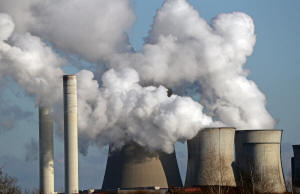|
"Heatwaves worsen air quality, with knock-on effects on human
health, ecosystems, agriculture and indeed our daily lives,"
said WMO Secretary-General Petteri Taalas in a statement.
"Climate change and air quality cannot be treated separately.
They go hand-in-hand and must be tackled together to break this
vicious cycle," he added.
According to the report, the effects of pollution resulting from
high temperatures are often overlooked but just as pernicious.
Examples cited in the report include the north-western United
States, where heatwaves triggered wildfires, as well as
heatwaves accompanied by desert dust intrusions across Europe.
Both led to dangerous air quality in 2022.
Brazilian case studies cited in the report showed how parks and
tree-covered areas within cities can improve air quality, absorb
carbon dioxide and lower temperatures, thus benefiting
inhabitants.
(Writing by Friederike Heine; Editing by Miranda Murray)
[© 2023 Thomson Reuters. All rights
reserved.] Copyright 2022 Reuters. All rights reserved. This material may not be published,
broadcast, rewritten or redistributed.
Thompson Reuters is solely responsible for this content.

|
|




